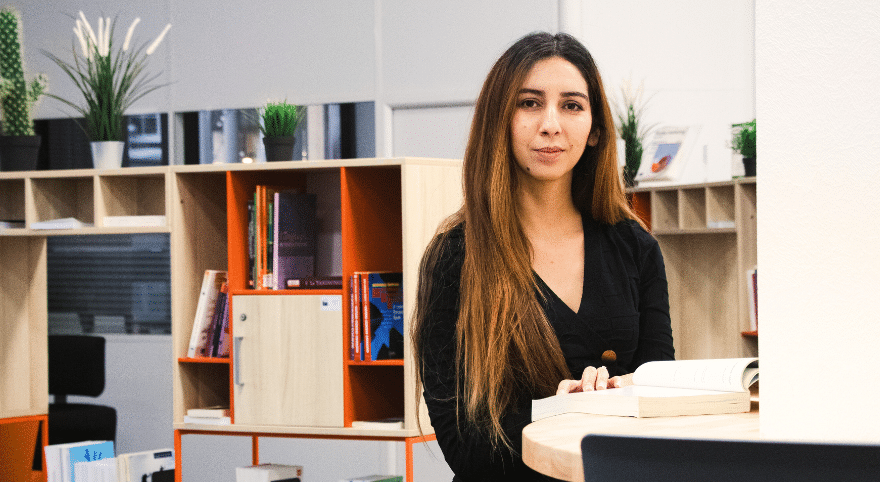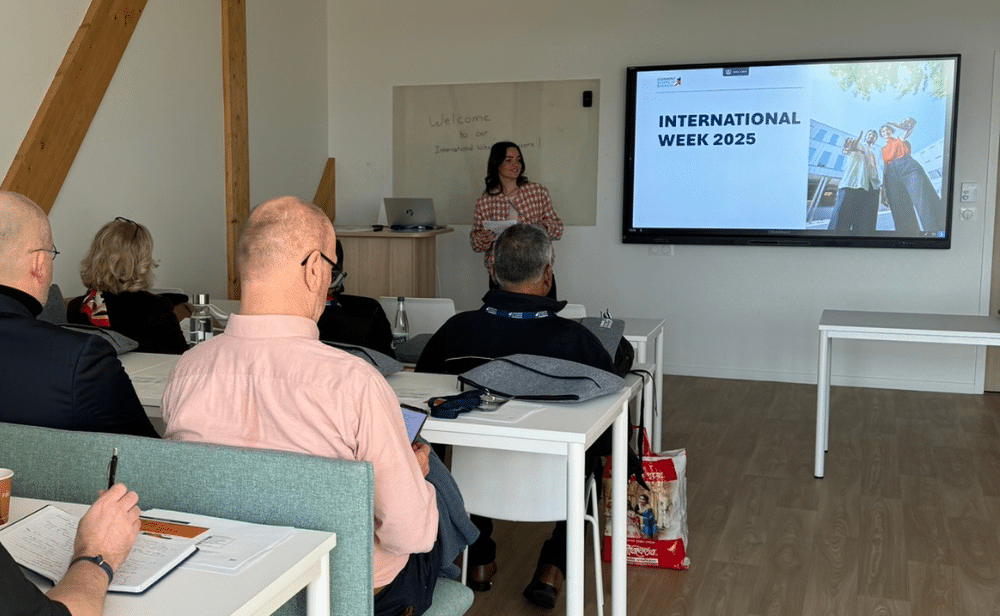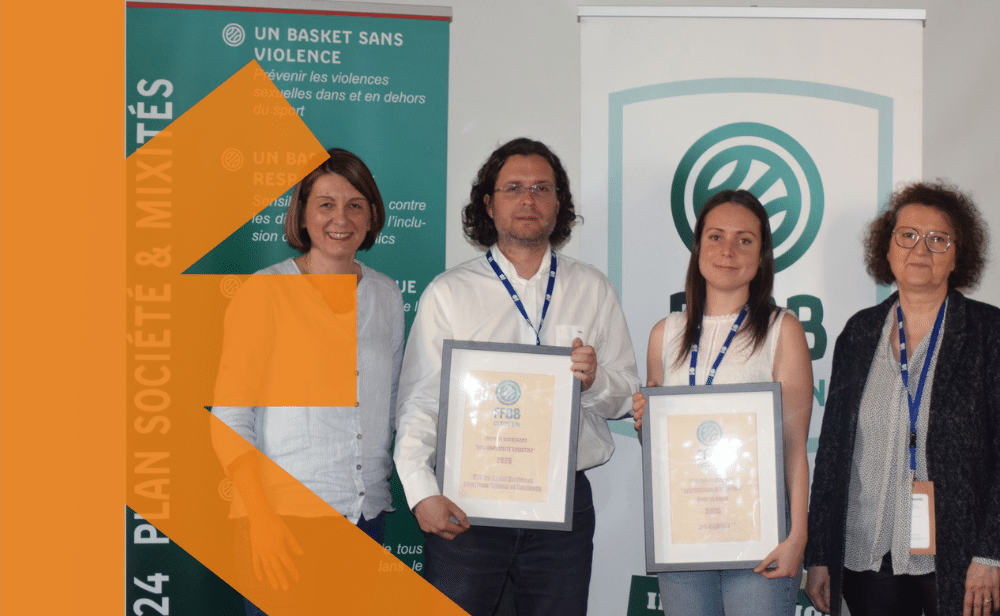

- Clermont School of Business
- International
- Study with us
- Programs
- Bachelor in International Management
- Bachelor in Digital Marketing & E-Commerce Management
- Master in Management
- Programme Grande Ecole online
- MSc – Master of Science Business Intelligence & Analytics
- MSc – Master of Science Corporate Finance and Fintech
- MSc – Master of Science Digital Marketing & Artificial Intelligence
- MSc – Master of Science International Commerce & Digital Marketing
- MSc – Master of Science Project Management
- MSc – Master of Science Procurement & Supply Chain Management
- Doctorate of Business Administration (DBA)
- Executive Education (French only)
- Discover the Master in Management majors
- International Students
- Summer School
- Tools & pedagogical support
- Programs
- Faculty & Innovation
- Company & Career
- News & Events
[SIDE FACULTY] Sustainable Finance & CSR, Interview with Fatma Mrad
Clermont School of Business relies on a permanent faculty of around fifty teacher-researchers affiliated with CleRMa, the Management Sciences research laboratory jointly supervised by Clermont SB/UCA. In the 2025 academic year, new teacher-researchers have joined the faculty, enriching the School’s academic dynamics and its ability to explore and promote sustainable management issues, whether in strategy, innovation, or finance.
Finance is a constantly evolving field, shaped by major challenges such as sustainable finance, corporate social responsibility, and technological innovation. More than ever, it must adapt to environmental challenges, new regulations, and growing expectations for transparency and ethics.
Fatma Mrad: Finance Serving the Challenges of Tomorrow
Fatma Mrad, a permanent professor of finance at Clermont School of Business, shares her academic journey from Tunisia to Canada and highlights the importance of research in transforming economic models.

What is your educational background?
I began my academic journey in Tunisia, where I earned a bachelor’s degree in finance, followed by a master’s degree in the same field. Driven by a deep interest in research, I then pursued a PhD in finance in Tunisia while also holding the status of visiting PhD student and associate researcher at the University of Ottawa. This international experience allowed me to broaden my perspectives, collaborate with researchers from diverse backgrounds, and explore complementary approaches in finance.
After completing my PhD, I continued my research with a postdoctoral specialization in sustainable finance, a field that directly addresses today’s ecological transition and corporate responsibility challenges.
How do you engage with the business world?
My primary interest has always been academia and research. However, during my postdoctoral studies, I had the opportunity to collaborate closely with private sector experts, which allowed me to bridge academic and professional approaches to sustainable finance. This experience enriched my understanding of real-world financial challenges and strengthened my commitment to developing solutions applicable to market realities.
Additionally, during my university studies, I completed several internships in banking, which familiarized me with industry practices and the expectations of financial professionals. These experiences shaped my thinking and reinforced my desire to contribute to the evolution of economic models toward a more responsible and sustainable approach through research.
What are your research and expertise areas in finance?
My expertise lies primarily in corporate social responsibility (CSR), sustainable finance, and life insurance.
Today’s climate and environmental issues—such as climate change, ecosystem degradation, biodiversity loss, and the management of limited natural resources—are increasingly concerning for individuals, businesses, and society as a whole. These global challenges not only impact the economy and public health but also demand urgent action and collective awareness.
In this context, researchers play a crucial role: they help better understand these phenomena, raise awareness among key stakeholders, and propose innovative solutions to address these challenges. Among the key action levers, sustainable finance and risk management play an essential role in integrating these issues into economic and societal decision-making.
Life insurance, for example, is a prime illustration of this dynamic. With increasing life expectancy and medical advancements, people are paying greater attention to their quality of life, particularly after retirement. In this regard, life insurance becomes a strategic financial tool—not only to ensure long-term financial security and well-being for policyholders but also to respond to demographic shifts and emerging societal needs.
Which programs do you teach in?
I mainly teach in two majors of the Programme Grande École (Master in Management): “Financial Engineering & Sustainable Finance” and “Financial Engineering & Innovation in Finance,” as well as in the Master of Science “Corporate Finance & Fintech.” Within these programs, I teach financial analysis, financial valuation, and portfolio management.
As the head of the “Financial Engineering & Sustainable Finance” major, I ensure that the curriculum maintains an optimal balance between theory and practice. We rely on faculty researchers to deliver solid academic courses, while also inviting industry experts to provide real-world insights into current financial challenges. This approach helps students better understand the application of theoretical concepts in professional settings.
Additionally, we emphasize group work, fostering collaboration, soft skills development, and practical competencies. Guest lectures from professionals in sustainable finance and financial engineering further enrich the training sessions, allowing students to engage with real-life situations and contemporary financial issues.
What advice would you give to students considering a career in finance?
I would first encourage them to immerse themselves in understanding today’s financial challenges, particularly in sustainable finance, corporate social responsibility (CSR), and financial market trends. Developing a global perspective on contemporary financial issues—ranging from new regulations and environmental concerns to the impact of technology on financial practices—is essential.
I also recommend that students go beyond theory by actively seeking practical experience through internships, hands-on projects, and networking with industry professionals. Finally, adopting a proactive approach by staying informed about market trends, reading specialized literature, and participating in seminars or conferences is an excellent way to gain a deeper understanding of the diverse career opportunities in finance.

Stay updated with the latest news from Clermont School of Business by subscribing to our newsletter!
Merci ! Vous êtes maintenant abonné(e) à notre newsletter.
Vous recevrez dorénavant notre newsletter mensuelle.
@bientôt
We faced problems while connecting to the server or receiving data from the server. Please wait for a few seconds and try again.
If the problem persists, then check your internet connectivity. If all other sites open fine, then please contact the administrator of this website with the following information.
TextStatus: undefined
HTTP Error: undefined
Some error has occured.



